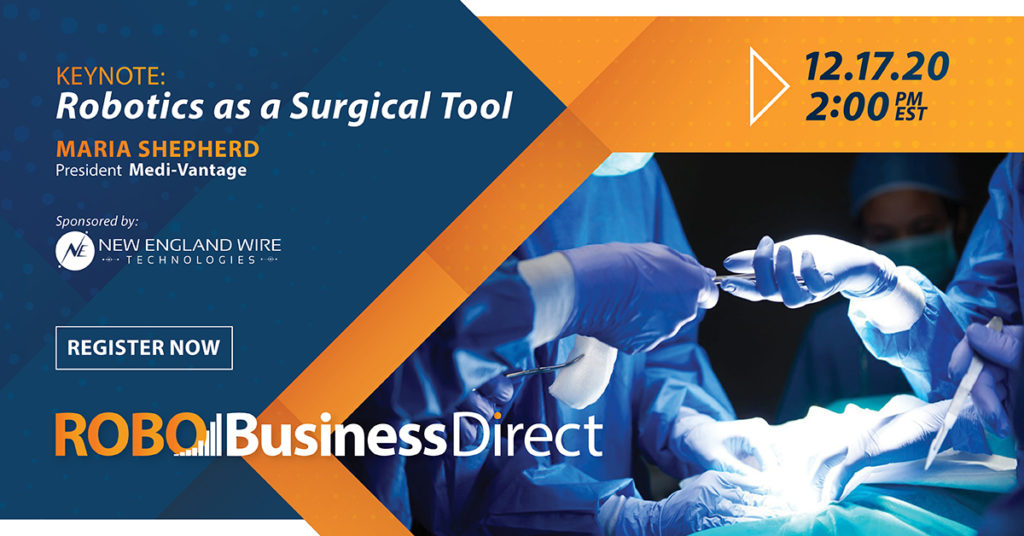
Some of the most promising developments of the past decade in medical device technology have been in surgical robotics. Ongoing research, technological advances, and wider adoption will continue to propel the market for robot-assisted surgery, which analysts predict will reach $13.7 billion by 2026 at a compound annual growth rate of 10.4%.
Still, debate continues about whether surgical systems are useful for multiple procedures. In addition, certain clinicians and industry observers have expressed concerns whether the next generation of surgical robotics can bring cost-effective and high-quality care to rapidly aging populations and underserved markets.
In her RoboBusiness Direct keynote session on “Robotics as a Surgical Tool” at 2:00 p.m. EST on Thursday, Dec. 17, 2020, Maria Shepherd, will review the pros and cons of today’s surgical robotics systems. Shepherd is president of Medi-Vantage, a medical device marketing and product development strategy advisory firm. She will draw insights from interviews with developers and thought leaders, as well as discuss what the next generation of surgical robotics systems could and should provide.
In addition, Shepherd will discuss telepresence and telesurgery systems, autonomous robots, and potential impacts on healthcare providers. She will also examine expand market access and competition, innovation, and commercial viability of surgical robotics.
Surgical robotics innovation and its impact on drive technology
Not only are advances in components driving surgical robotics innovation, but surgical robots are also affecting ingredient technologies. In a breakout session at 3:00 p.m., Carsten Horn, an applications engineering manager at maxon, will review the current field of surgical robotics, including trends, projected innovations, and active developments.
Horn will highlight the challenges and solutions for drive systems that power and enable robotic surgery. He will describe how this sector’s newest challenges have an effect on drive systems. Horn will also touch upon haptic feedback, miniaturization, non-linear mechanics, autonomous processes, and the results of robotic surgery on the human body.
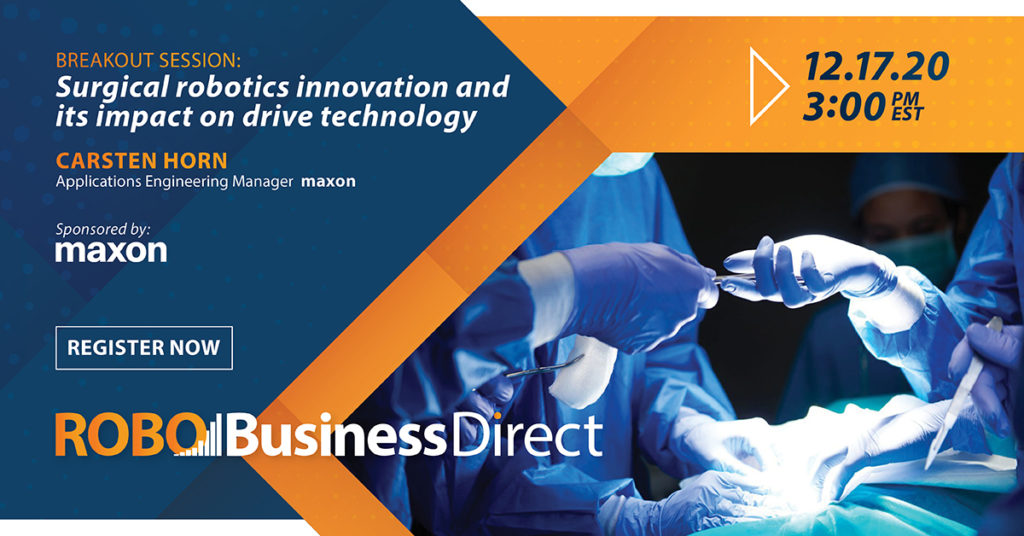
About RoboBusiness Direct
RoboBusiness Direct is an ongoing series of digital events delivered by brightest minds from the leading robotics and automation organizations around the world. The series complements continuing coverage and analysis in Robotics Business Review, a sibling site to Collaborative Robotics Trends.
RoboBusiness Direct is designed to impart to business and engineering professionals the information they need to identify market opportunities, successfully develop and deploy the next generation of commercial robotics systems, and accelerate their businesses.
You can find a listing of RoboBusiness Direct speakers and topics, along with the dates and times of upcoming sessions, HERE. RoboBusiness Direct presentations are available on demand after the initial broadcast.
There is no charge to register for RoboBusiness Direct programs.
About the speakers
Maria Shepherd launched Medi-Vantage in 2007, and since that time, the company has worked with over 250 medical device companies to determine acquisition and pricing strategies, commercialize new medical device technologies, and assist product development teams in the design or re-engineering of medical devices.
Prior to launching Medi-Vantage, Shepherd was vice president of marketing at Oridion (acquired by Medtronic) and director of marketing for Philips, serving the critical care patient monitoring division. She also served at Boston Scientific in senior management roles. Shepherd also serves on the board of MedExecWomen, an organization focused on empowering females executives in medtech. Shepherd received an MBA from Babson College and a BA in Biology from the University of Pennsylvania.
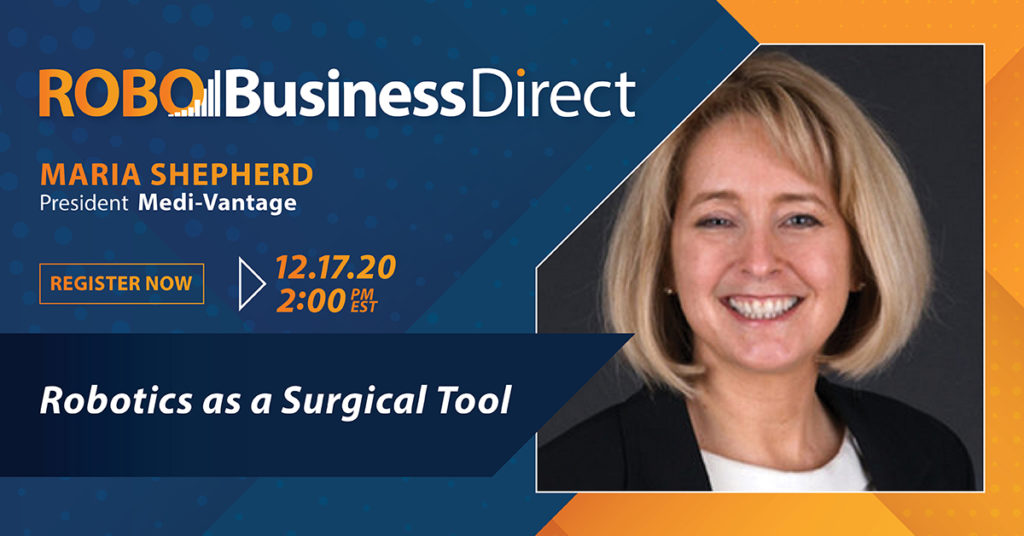
Carsten Horn is from Germany, where he studied physics and mechatronics. Horn worked as head of design and research and development at various companies before joining maxon motor Germany in 2004 as head of R&D for gear boxes and systems. He later headed the product management team at maxon Germany, where he focused on design of components for medical device products.
In late 2016, Horn moved to the U.S., where he is applications engineering manager at maxon precision motors, a leading supplier of high-precision drives and systems.
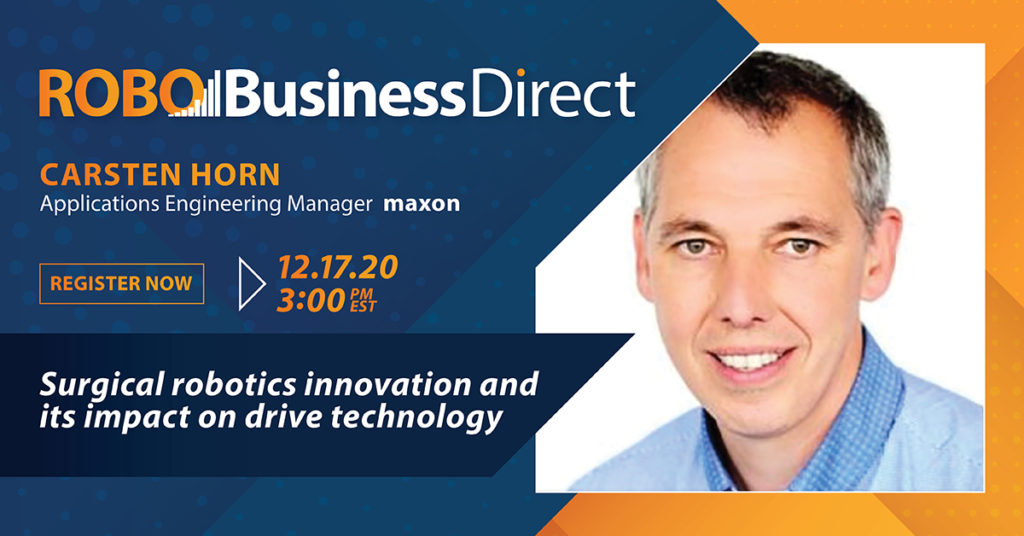
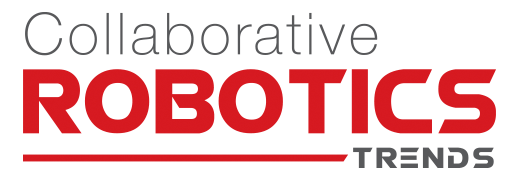

Leave a Reply
You must be logged in to post a comment.